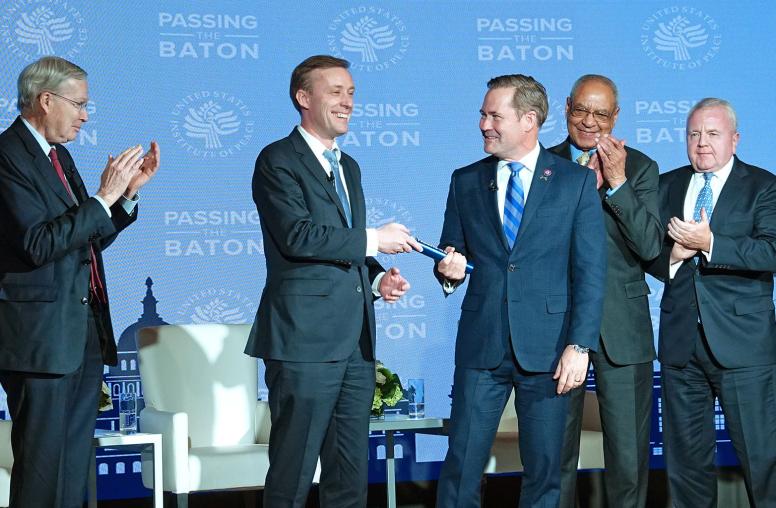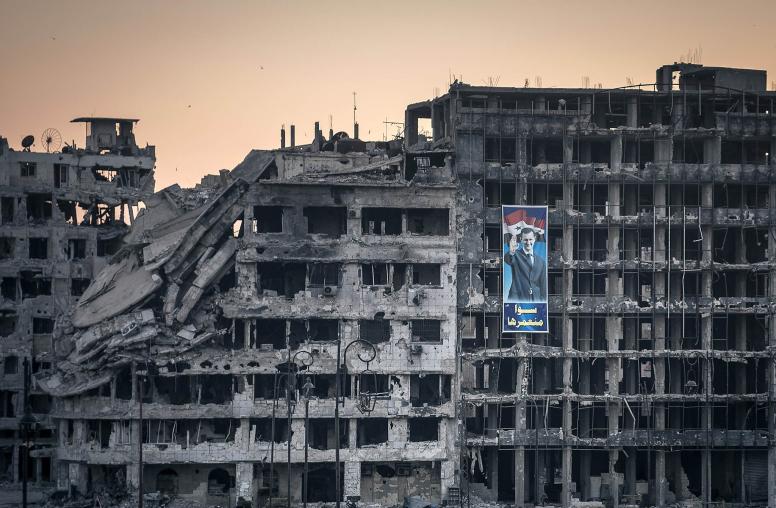Research & Analysis
U.S. Institute of Peace’s articles, reports, tools and other features provide policy analysis, research findings, and practitioner guides. These publications examine critical conflict issues at the center of the Institute’s work to prevent and resolve violent conflict.
The views expressed in these publications are those of the author(s).

With Cease-fire Holding, Can Israel and Iran Move Toward De-escalation?
Israel’s stunning and sophisticated June 13 attack on Iran set off a worrying 12-day escalatory spiral. Iran responded in short order with ballistic missile and drone strikes, which led to a series of tit-for-tat exchanges between the two sides. A cease-fire is now in place -- but will it hold?

What’s at Stake for China in the Iran War?
China has major energy and economic interests that are threatened by an escalating conflict. But Beijing may also see some strategic opportunities with the U.S. focused on the war. Ultimately, China is likely unwilling, and unable, to make a serious effort to broker peace.

What Does ‘Maximum Pressure’ on Iran Mean for Iraq?
On March 8, the United States allowed a waiver to expire that had permitted Iraq to buy Iranian electricity. The move was the latest in the Trump administration’s “maximum pressure” campaign to cut off Iran’s revenue streams and push Tehran to negotiate over its controversial nuclear program. The waiver dates back to President Trump’s first term. In 2018, Trump withdrew the U.S. from the 2015 Iran nuclear deal, which had granted Iran sanctions relief in return for curbing its nuclear program and expanding cooperation with the U.N. nuclear watchdog.

The Current Situation in Iran
For decades, Iran has vexed the international community. It introduced Islam as a form of governance in 1979 and has supported militants abroad and defied international norms. The Islamic Republic has long opposed Israel and sought to expel U.S. forces from the Middle East. It has also deepened ties with other U.S. adversaries, including China, Russia and North Korea.

U.S. National Security Advisors Talk Top Foreign Policy Challenges
Against the backdrop of numerous crises and challenges — including destructive wildfires in California, the fall of Bashar al-Assad in Syria and cease-fire negotiations in Gaza — National Security Advisor Jake Sullivan and his successor, Michael Waltz, believe a seamless transition from the Biden to Trump administrations is essential for safeguarding U.S. security. President-elect Donald J. Trump is set to take the oath of office in Washington on January 20.

Iran and Russia Are the Biggest Regional Losers of Assad’s Fall
Among the central factors that led to the ouster of Syrian dictator Bashar al-Assad was Iran’s and Russia’s decisions to not intervene yet again to prop him up. Tehran had long used Syria as vector to project influence in the region and marshalled significant resources and manpower to keep Assad in power when the Syrian civil war erupted in 2011. Moscow similarly saw its ties with Assad as a source of regional influence, and its 2015 intervention in Syria was decisive in Assad maintaining his stranglehold on power.

What’s Next for Israel, Iran and Prospects for a Wider Middle East War?
Early Saturday morning in Tehran, Israel carried out what it called a series of “precise and targeted” airstrikes on Iranian military targets. This was the latest in a series of direct exchanges between Isarel and Iran in recent months. Israel Defense Forces struck 20 sites, including air defense batteries and radar, factories for missile and drone production, and weapons and aircraft launch sites. Israeli Prime Minister Benjamin Netanyahu announced that the attack had "severely damaged Iran’s defense capability and its ability to produce missiles.” The Iranian government announced the deaths of four military personnel and one civilian, but otherwise took a more measured response than might be expected.

Mona Yacoubian on the Middle East’s Dangerous Escalation Dynamic
Amid the latest exchange of strikes between Israel and Iran, the Middle East is “a region that really is on fire,” says USIP’s Mona Yacoubian. “There are no guardrails anymore … all of these different players are testing and probing each other to see what they can get away with. And that’s where the danger lies.”

The Middle East on Fire
Iran’s ballistic missile strikes on Israel on October 1 have raised fears of an all-out war in the Middle East. The deepening spiral of bloodshed began on September 17 and 18 with the detonation across Lebanon of thousands of pagers and two-way radios used by Hezbollah operatives — one analyst deemed the unprecedented Israeli operation “the most extensive physical supply chain attack in history.” Ongoing airstrikes in Beirut and southern Lebanon have marked the most significant Israeli barrage in 11 months of tit-for-tat escalation. On September 27, Israel dealt Hezbollah a devastating blow by killing its leader Hassan Nasrallah in an airstrike on a Beirut suburb. Despite reeling from these latest reverses and the evisceration of its command structure, the Shiite militia continues to lob missiles at Israel. Stunned and outraged, Iran — Hezbollah’s patron — fired around 200 ballistic missiles at Israel; at least one person was killed in the West Bank. Iranians are now bracing for Israeli retaliation. The cycle of violence, it appears, is far from over.

Hassan Nasrallah is dead. What happens next in the Middle East?
Two weeks ago, Israel announced that halting Hezbollah attacks had become an official goal of its post-October 7 war effort. Since then, Israel conducted a sophisticated clandestine attack on Hezbollah’s communications infrastructure and struck numerous Hezbollah targets in southern Lebanon and the suburbs of Beirut, killing many of Hezbollah’s senior leaders. Then, on Friday, an Israeli airstrike assassinated Hezbollah’s leader, Hassan Nasrallah, who led the group for over 30 years.